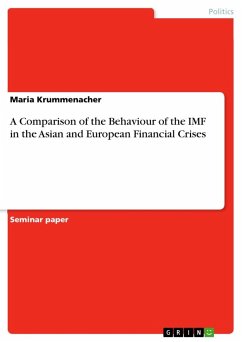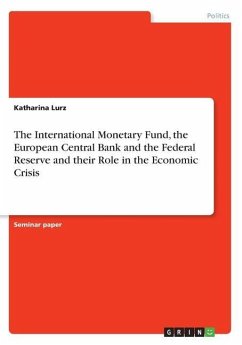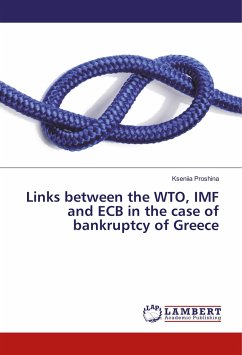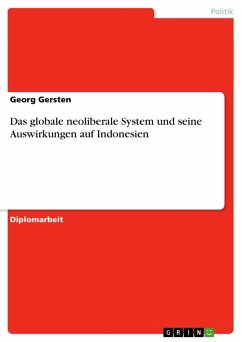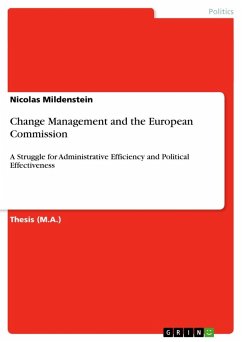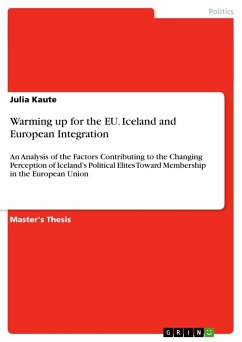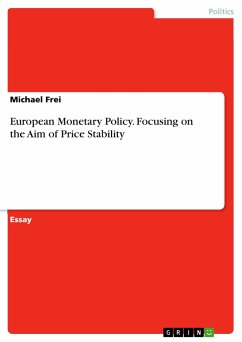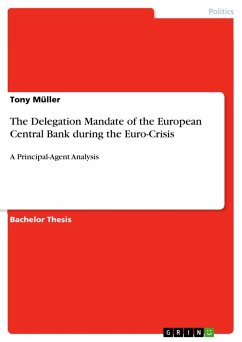Seminar paper from the year 2012 in the subject Politics - International Politics - Topic: Globalization, Political Economics, grade: 1,0, University of Potsdam (Wirtschafts- und Sozialwissenschaftliche Fakultät), language: English, abstract: This paper will deal with the behaviour of the International Monetary Fund during the financial crises in Asia of the 1990s and the current financial crisis in Europe. The main interest lies in whether the political environment in Europe with the third party European Union (EU) and the institutions of the euro area causes a different incentive and power structure leading to a different behaviour on the part of the IMF in the European crisis when compared to the Asian crisis.In Asia, the IMF was confronted with a more or less conventional regional financial crisis and it put together an individual programme for every country asking for help. In Europe on the other hand the EU represents a new, supranational, sovereign institution that has power over its member states and has become the linchpin when dealing with the European financial crisis. My thesis is that the EU-institutions (most notably the Council of the European Union, the European Commission and the European Central Bank) took over the role the IMF had in the Asian crisis and now act as the authorities that link the financial aid to conditionalities while the IMF is marginalized into the simple task of providing financial assistanceWhat the paper doesn t want to do:No assessment of the failure or success of the IMFs rescue packages for the Asian and European countries will be given. This goes beyond the initial interest and in case of the European crisis it is too early to assess as the crisis is still ongoing. Furthermore, the paper will abstract from the differences between the crises in Asia and Europe in terms of economic difficulties (exchange rate crisis, crisis of the financial sector, debt crisis). I think this is reasonable considering the focus does not lie on which kind of rescue programmes have been established, but on how the IMF behaved in the process of crisis management.The main part is divided in one segment for the Asian crisis and one for the European crisis. In both I will answer the same three questions: a) which actions were taken by the IMF? b) what did the institutional environment in which the IMF acted look like? and c) how did the IMF behave and how can this behaviour be explained? By focussing on these three points I will be able to draw a line between the Asian and the European financial crisis and explain why the IMF behaves differently today in Europe than it did in the 1990s in Asia. In a concluding chapter I will summarize my results.
Bitte wählen Sie Ihr Anliegen aus.
Rechnungen
Retourenschein anfordern
Bestellstatus
Storno

